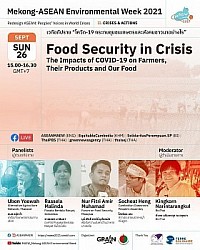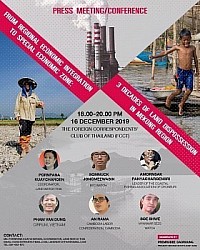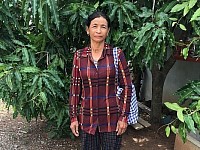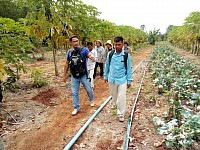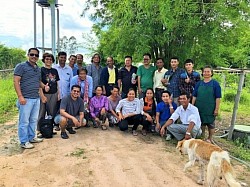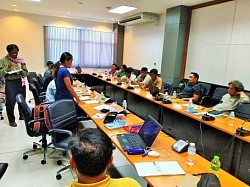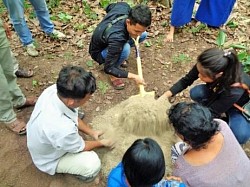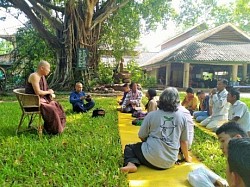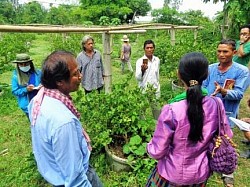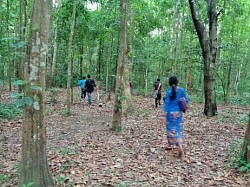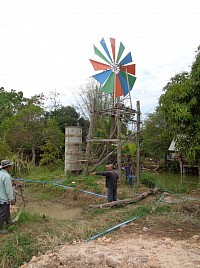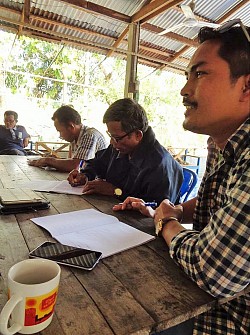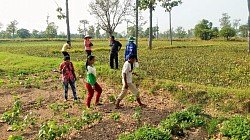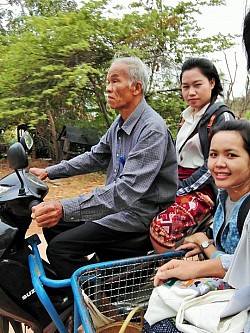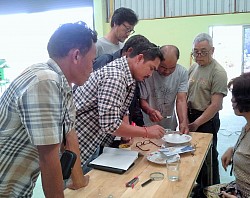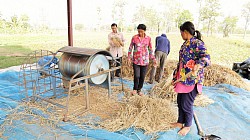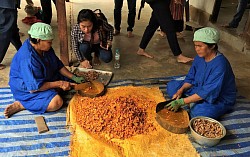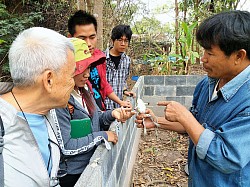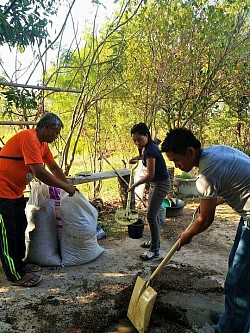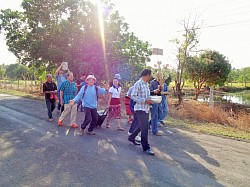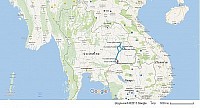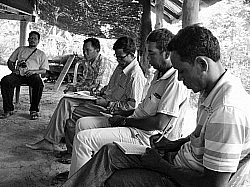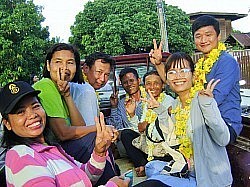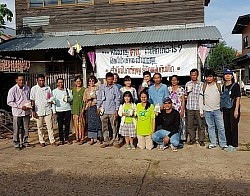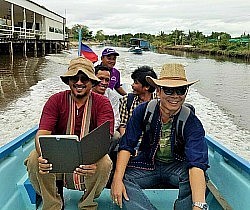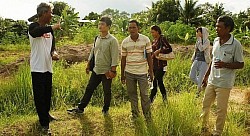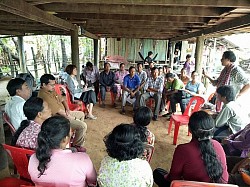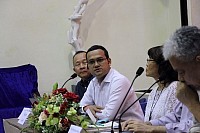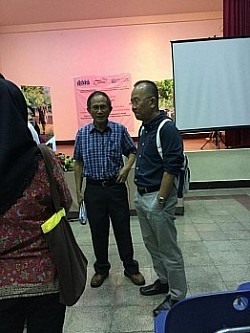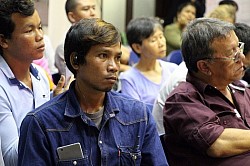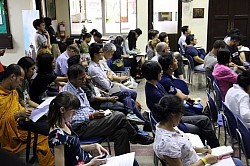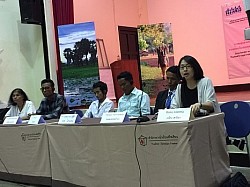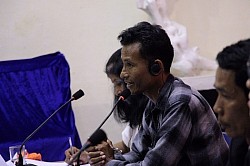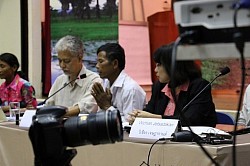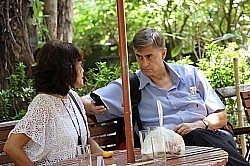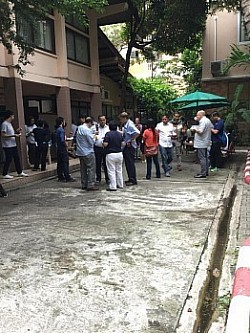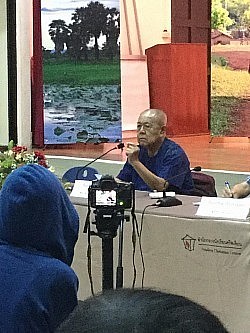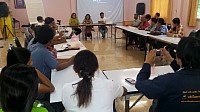On land, forest and agriculture
Panel discussion “Food security in crisis: the impacts of COVID – 19 on farmers, their products and our food”, 26 Sept 2021
The online forum on 26 September 2021
Co-organizers Alternative Agriculture Network (Thailand), GRAIN, Project SEVANA South-East Asia
This panel was organized during the Mekong-ASEAN Environmental Week (MAEW)2021
Panelists
Socheat Heng, Cambodian Grassroots People's Assembly Nur Fitri Amir Muhamad, Malaysian Food Security and Sovereignty Forum (FKMM)
Watch his presentation
Rassela Malinda, Pusaka Bentala Rakyat, Indonesia Ubon Yoowah, Alternative Agriculture Network, Thailand
Moderator
Kingkorn Narintarangkul, BioThai
Watch the video of the panel https://youtu.be/-X7sL7HkYnw
Background
The COVID-19 outbreak is a crisis that no country can anticipate and is not prepared to deal with. In trying to slow down the outbreak and prevent the speedy infection that can cause heavy medical needs followed by public healthcare systems collapsing, most countries choose measures such as lockdowns or closing down the city, restricting the movement of people and transportation and social distancing. Such policies directly affected the people and their activities and indirectly impacted other relevant activities as a domino.
Concerning the agricultural system and supply chain for food, the restriction for transportation, tourism, restaurants, and hotel operations has prevented agricultural products from being sold or transported. Many countries' data collection and research results confirm that farmers who produce commercial monocultures are more severely affected than those who grow mixed crops. Regarding food security, agricultural households are more self-reliant on food than urban residents. Families with agricultural practices have turned to growing crops and raising more animals for food rather than to sell. The studies have also shown that natural resource-based families are more advantaged with more natural food.
Looking at economic and social dimensions, the impact of the COVID-19 epidemic has affected the economy at the national and grassroots levels. As a result, the inequality gap has been widening. Therefore, how to survive in the present situation and deal with the future has become essential for all sectors regarding remedy measurement, prevention of future problems, and pushing for the country’s further development.
With all this, there are important questions to answer, including: How does the COVID-19 epidemic affect the small-scale agriculture households, which are the majority of the people in Southeast Asian countries? How do we adapt and build resilience in the agricultural sector? What should the remedy approach be, and what is participatory development? Also, what policies should be formed to reduce the impacts of COVID–19 now and in the future?
Therefore, exchange and creating mutual learning among representatives from different countries in Southeast Asia to look for the answers that can lead to a joint strategy and action should benefit local communities, civil society, and academic groups that are trying to work to support the agriculture/farmer movement in Southeast Asia.
From the Regional Economic Integration to Special Economic Zone: 3 Decades of Land Dispossession in Mekong Region - 16 Nov 2019
The Press Meeting/Conference titled "From the Regional Economic Integration to Special Economic Zone: 3 Decades of Land Dispossession in Mekong Region" was organized at the Foreign Correspondent Club of Thailand (FCCT) on 16 November 2019 by Land Watch Thai
The panelists in this press conference/briefing are;
Pornpana Kuaycharoen, Land Watch Thai Somnuk Jongmewasin, EEC Watch Amornsak Panyacharoensri, the Coastal Fishing Association of Chonburi Pham Van Dung, CIRRUM, Vietnam An Rama, Cambodia Labor Confederation, Cambodia Soe Shwe, Myanmar SEZ Watch
Moderate by Premrudee Daoroung, Project SEVANA South-East Asia
Watch the live video of this forum here:
https://fb.watch/2YTdg9_ILF/
The court inquiry on the Thai company with its sugarcane plantation and land grabbing in Cambodia, June 2019
The court Inquiry on the sugarcane plantation and land grabbing in Oddor Meanchey Province, Cambodia, between the local community representatives and Thailand’s Mitr Phol CompanyLimited (12th-14th June 2019)
As part of the farmer/land campaigner network, the local community from the O’Bat Muan Community, which faced land grabbing and a village burnt down caused by the sugarcane plantation of Thailand’s Mitr Phol Company, has filed a lawsuit against the company in the Thai court. The court case happened a month after the exchange project was organized in Thailand.
The court inquiry has occurred at the Southern Bangkok Civil Court to consider whether the trial will be treated as a class action lawsuit. The Thai, Cambodian, and international lawyers work together on the case. The court testimony involved two local people from the ex-O’Bat Moan Village and Project SEVANA Coordinator, Ms. Premrudee Daoroung, as she was leading the research framework/process to study the people’s livelihood and the situation relating to the land grabbing in O'Bat Muan community back to the year 2014. The report from the research was the key material for the Thai Human Rights Commission (THRC). Most of the content from the report was put in the THRC investigation report that came out in 2015.
See more details of the case at <https://www.inclusivedevelopment.net/mitr-phol/
See the full THRC report at http://www.sevanasea.org/reports.html
See news and updates about the court inquiry:
Cambodians to appeal ruling in Mitr Phol case (bangkokpost.com)l
Cambodian villagers to appeal Thai court's rejection of suit against sugar giant | Reuters
IDI, EC and LICADHO complaint to UK NCP about Bonsucro Ltd - GOV.UK (www.gov.uk)
Cambodian farmers battle in landmark lawsuit against Thai sugar firm | Life | Malay Mail
Farmers Exchange - May 2019
Farmer exchange 2019 occurred in three provinces in Northeastern Thailand in May 2019. All 16 participants came from Cambodia, Lao PDR, and Thailand. The team traveled to Ubon Ratchathani Province and discussed the main issues related to their agricultural practices and livelihood and the need for organic farming in different contexts. After that, they traveled to Sisaket Province and stayed in the "Sisa Ashoka," the village that applies Buddhism, vegetarian food, and organic products. Participants observe and practice the organic farm and learn about their ideology. Finally, they went to Yasothorn Province to meet and learn from the groups of organic farmers there.
The supporting organization for this trip is Thailand's Sustainable Agriculture Network.
Farmers Exchange - February 2018
The one-week exchange and field practices among the small-scale organic farmers from Cambodia, Lao PDR, and Thailand that happened at the end of February 2018 is a project conducted by Project SEVANA South-East Asia in close cooperation with Equitable Cambodia and Thailand’s Sustainable Agriculture Network. The project brought many farmers and local leaders from the three countries, from language and culture to critical problems sharing some similarities, to meet and work together. The destruction of land, water, and natural forests by the major projects and investments in the three countries is one of the serious problems they are all facing. This program allows them to share their experiences, exchange ideas, and practice organic farming in North-eastern Thailand's Surin and Yasothorn Provinces. In this program, organic farming is learned and exchanged as a tool to sustain people’s livelihood and to insist on the peoples’ needs in protecting and reclaiming the original value of the livelihood that depends on both natural resources and agriculture.
Farmers exchange - August 2017
The exchange trip among the 15 people, mostly the farmers from Thailand and Cambodia, as well as the NGO staff and media persons from Laos, happened in June and August 2017. The first trip in June was to Surin, Yasothorn, Amnart Charoen, and Kalasin Province in Northeastern Thailand, where the new sugar and biofuel factories are being proposed. The exchange team traveled for more than 740 kilometers to learn and exchange about the movement by the local community and also about the value of sustainable/organic agriculture, which people are relying on.
The second trip in August 2017 was much shorter in distance than the first one. The team traveled some 160 kilometers within Koh Kong Province in Cambodia and learned from both the communities allocated by the coastal area. The group then traveled to see and meet with the people in the affected community and the sugarcane plantations and sugar factories invested by the Thai sugar company.
Regional Public Forum, July 2016
On "Cross-border investments and forced Migration in ASEAN: The relation of Thailand’s sugar industry to Cambodian Migrant labors in Thailand," 14 July 2016 at Student Christian Center, Bangkok
Co-organizers
Project SEVANA South-East Asia
Center for Peace and Conflict Studies, Chulalongkorn University
Contract Farmer Network (Thailand)
Human Rights and Development Foundation
Background
This public forum, Cross-border investments and forced Migration in ASEAN: The relation of Thailand’s sugar industry to Cambodian Migrant laborers in Thailand, aims to a better understanding of how the pattern of land grab and environmental destruction as a consequence of the free-flowing investments across the borders enhancing more market-based agriculture, directly destroy natural resources, and impacts of this to the flows of unskilled migrant workers cross the borders such as the case of Cambodia and Thailand. The forum will facilitate discussion among the relevant actors (village people, CSOs, companies, government officers, and academics) on the two parallel issues, the way cross-border investment impacts the environment and livelihoods, and the situation of migrant workers who came from the forced migration background as the victims of large-scale investment. The forum provides a regional space for information sharing, discussions, and debates. In addition, the forum serves as a kick-start activity to enable the relevant actors and regional public audience to gain more understanding, new perspectives, and ways to improve the situation of the hidden cross-cutting issues within the region’s economic growth paradigm.
Objectives
To inform the Thai public on the issue of cross-border investments and the migrant workers in ASEAN To support the local communities in raising their voice in public on their problems and requests, and also directly to the relevant actors, especially government and company representatives. To reveal the critical information from the Thai National Human Rights Commission’s investigation and report on the two cases, KSL and Mitr Phol Sugar companies To encourage constructive exchanges and debates among different actors on the issues in public space, which can be the way to better the situation of land-grabbing and forced migrant workers in the future
Language: Thai, Cambodian, and English
Participants: 97 people, including academics, Non-government organizations working on Environmental, human rights, labor, Law reform, Trade and Investment, Mekong Migrant Network, Human development, cultural and Buddhism and Energy network,
Twelve village people from Northeastern Thailand, Oddor Meanchey, and Koh Kong Province in Cambodia. Among them, 8 Cambodian villagers are presently migrant workers in Thailand),journalists, representatives from international and Thai Institutes, Independent mechanisms and organizations including; The Thai Human Rights Commissioners, EU, Embassies, the Law Reform Commission of Thailand, business persons, and 15 individuals (general public) including one monk.
Programme
8.30-8.45 Welcoming note By Professor Surichai Wungaeo, Director, Center for Peace and Conflict Studies, Chulalongkorn University
8.45-9.00 Opening speech By Sulak Sivaraksa, founder and director, Sathirakoses-Nagapradeepa Foundation
9.00-10.15 am Panel one: Cross-border investments and forced Migration in ASEAN
Migrant workers in the context of Human Rights and ASEAN - Mr. Somchai Homlaor, General Secretary, Human Rights and Development Foundation An investigation of Thai Human Rights Commission on Mitr Phol case in Cambodia - Dr. Nirun Pitakwachara, Thailand Human Rights Commissioner (2008-2015) The situation and campaign on land grabbing and Thai sugar business in Cambodia- Mr. Eang Vuthy, executive Director, Equitable Cambodia Crossing border investment in ASEAN: current situation, trend and a future paradigm - Ms. Premrudee Daoroung, Project SEVANA South-East Asia
Moderator: Mr. Witoon Permpongsacharoen, Mekong Energy and Ecology Network (MEENet)
10.15-10.30 Short film “We ran away without anything”
10.30-12.00: Panel two: The changing livelihood in sacrifice to large scale investments: from farmer to labor
The changing life with sugar plantations – Mr. Thongpun Bunsaen, Representative from Contract Farmer Network, Thailand From farmer to migrant worker: the ten-year experiences- Mr. An Un and Mr. Yoy Tai Am Village person, O’Bat Muan village, Oddor Meanchey Province, Cambodia
**Listen to their voices here https://youtu.be/SuDvWVTgt9A
The experience of Illegal Thai worker in the fishery sector – Mr. Thanaphol Thamraksa, The local fisher with support from the Labour Rights Promotion Network Foundation (LPN) The regional’s burning situation on migrant workers and recommendations from Mekong migrant Network - Ms. Reiko Harima, Regional Coordinator, Mekong Migrant Network
** Listen to her presentation here https://youtu.be/kxmZIDQegCo
Moderator: Shalmali Guttal, Focus on the Global South
13.00-15.00 Panel three: Request and recommendations of the people: Making the situation better
Reading of Manifesto of Thai and Cambodian Farmers and Peoples from the Meeting in Surin Province - on the impact of cross-border investment from Thailand and Cambodia's local community Importance of the reunion among the divided families and community members in Cambodian people’s perspectives - Mrs. Hoy Mai, a village person from O’Bat Muan Village, Oddor Meanchey Province
**Listen to her voice here https://www.youtube.com/watch?v=fq0q_BpZzr0
How land important to Cambodia people – Mr. Teng Kao, Representative from the Koh Kong community
**Listen to his voice here https://youtu.be/mkdOx4KnI48
Panel to respond
Mr. Wichian Jetsadakan, a business person and a member of the Thai PBS Television Audience Assembly Mr. Wanlop Pichpongsa, President of the Social Venture Network Asia (Thailand) Ms. Sayamol Kraiyoorawong, Law Reform Commission of Thailand
Moderator: Mr. Somchai Homlaor, Human Rights and Development Foundation
15.30-16.30 - Final round of exchange between speakers and participants, public discussion, and gathering of recommendations
Moderators – Ms. Premrudee Daoroung, Project SEVANA South-East Asia
16.30-17.00 Closing words by Mr. Veerawat Theeraprasart, Chairperson, Foundation for Ecological Recovery, Thailand
Watch the atmosphere and quotes from the forum here
Affected Farmers from sugar industry gathering in Surin Province, Thailand - 12 July 2016
The local gathering in Surin Province, Northeastern Thailand, was part of the establishment of Project SEVANA.
The gathering of local people in Surin Province, Northeastern Thailand, in July 2016 specifically proposed exchanging the experiences of Thai and Cambodian people affected by the sugar industry. At the meeting, there were three village people from Oddor Meanchey and Koh Kong Provinces in Cambodia, one staff of Equitable Cambodia, the Phnom-based organization, and 17 Thai participants, including 10 Thai village people, primarily representatives of the Contract Farmer Network, Northeastern Thailand. They came from four provinces, Surin, Roi-et, Mahasarakham, and Khon Kaen. There were also another 7 NGO Persons; from the Community of Agro-Ecology Foundation and Project SEVANA South-East Asia.
Manifesto of Thai and Cambodian Farmers and PeoplesFrom the Meeting in Surin Province 12 July 2016
We, the farmers and people of Thailand and Cambodia, have met and shared information and opinions regarding changing ways of life, particularly how large-scale investments in Thailand and Cambodia, particularly in the sugar industry, have directly impacted our livelihoods.
We understand that sugar plantations, plants, and related industries generate massive income for the owners. The produce is not sugar per se but also that of downstream industries, including ethanol and biomass power plants. The larger the industry, the more profits are generated.
Overseas investment in large-scale sugar plantations and industries, as well as downstream industries, is expanding across the border in this region. This is evident from the painful experiences of Thai farmers who engaged in sugar plantations, including indebtedness, extensive chemical use, and land loss, which are not well known to the public, to the current land grabbing by the sugar industry in Cambodia and Lao PDR.
With this manifesto, we call on:
1. Thai companies, the investors of sugar industry, must be held accountable, particularly when they have caused grabbing of land from the people as illustrated by the case in Cambodia. The companies together with the government must be obligated to ensure fair restoration of land to the people.
2. The companies must be in the redress process, giving compensation to the people for the time when they lost their land and suffered negative impacts as a result of the companies’ investment.
3. The companies must acknowledge the hearing process, publicly taking part in the process and working with the government and the people in finding solution.
4. The companies must develop the policy that ensure their responsible investment: responsibility to peoples’ livelihoods, environment and resources that the people depend on.
5. Finally, we call on the people and the civil society of Thailand to form a mechanism in scrutinizing Thai investment, domestically and internationally and;
6. The Thai Government must develop the policy to regulate Thai investments, domestically and internationally. A clear process must be established to deal with investments that cause adverse impact to the people. Also, the Thai Government must support public scrutiny of overseas investment.
12 July 2016
Alternative Agriculture Network and Contract Farming Network of Roi-et Province and Maha Sarakam Province, Thailand
People losing land Network, Oddor Meanchey Province, Koh Kong Province
คำประกาศของเกษตรกรไทยและกัมพูชาจากการประชุม ณ จังหวัดสุรินทร์ -12 กรกฎาคม 2559
พวกเรา เกษตรกรและประชาชนจากประเทศไทยและกัมพูชา ได้มาพบกัน เพื่อแลกเปลี่ยนข้อมูล ความคิดเห็นที่เกี่ยวข้องกับวิถีชีวิตที่เปลี่ยนแปลงไป อันเกี่ยวข้องโดยตรงกับการลงทุนขนาดใหญ่ ทั้งในประเทศไทยและประเทศกัมพูชา โดยเฉพาะในกิจการอ้อยและน้ำตาล อันมีผลกระทบต่อวิถีชีวิตของเราโดยตรง
พวกเรามีความเข้าใจว่า อุตสาหกรรมการปลูกอ้อยในพื้นที่ขนาดใหญ่ โรงงานน้ำตาล และโรงงานที่เกี่ยวข้อง เป็นกิจการขนาดใหญ่ และก่อให้เกิดรายได้อย่างมหาศาลต่อเจ้าของกิจการ มิใช่เพียงจากน้ำตาลที่ผลิตได้ แต่เป็นผลผลิตจากอุตสาหกรรมต่อเนื่อง ไม่ว่าจะเป็นเอธานอล หรือไฟฟ้าชีวมวลก็ตามที ยิ่งใหญ่โตมากเท่าใด ผลประโยชน์ก็ยิ่งมากขึ้นเท่านั้น
การลงทุนข้ามชาติของกิจการไร่อ้อยขนาดใหญ่ อุตสาหกรรมน้ำตาล และอุตสาหกรรมต่อเนื่อง กำลังขยายตัวข้ามพรมแดนไปในพื้นที่ในภูมิภาคของเรา จากประสบการณ์อันเจ็บปวดของเกษตรกรไทย ที่เคยทำไร่อ้อย ทั้งเรื่องหนี้สิน การใช้สารเคมีในพื้นที่ และการสูญเสียที่ดิน ซึ่งไม่ปรากฏว่าเป็นที่รับรู้กันโดยสาธารณะชนมากนัก ในปัจจุบัน พวกเรารับรู้ปัญหาการถูกแย่งเอาที่ดินจากกิจการอ้อยและน้ำตาลในประเทศกัมพูชาและประเทศลาวร่วมกันในที่ประชุมนี้
ด้วยคำประกาศร่วมกันนี้ พวกเราจึงขอประกาศคำเรียกร้องของเราดังต่อไปนี้
1. บริษัทไทย ผู้ลงทุนในกิจการอ้อยและน้ำตาล ต้องแสดงความรับผิดชอบ โดยเฉพาะเมื่อเป็นสาเหตุให้มีการแย่งยึดที่ดินของประชาชน จากตัวอย่างในประเทศกัมพูชา บริษัทต้องรับผิดชอบร่วมกับรัฐบาล ดำเนินการให้ประชาชนได้รับที่ดินคืนอย่างถูกต้อง และเป็นธรรม
2. บริษัทต้องร่วมอยู่ และรับผิดชอบในกระบวนการเยียวยา จ่ายค่าชดเชยให้ประชาชน สำหรับช่วงเวลาที่ประชาชนต้องสูญเสียที่ดิน และได้รับผลกระทบต่าง ๆ ที่มาจากการเข้าลงทุนของบริษัท
3. บริษัทต้องยอมรับกระบวนการรับฟังข้อเท็จจริง และเข้าร่วมรับฟังปัญหาในข้อเท็จจริงอย่างเปิดเผย และทำงานร่วมกับรัฐบาลและประชาชนเพื่อแสวงหาหนทางแก้ไขปัญหาร่วมกันต่อไป
4. บริษัทต้องมีนโยบายความรับผิดชอบในการลงทุน ต่อวิถีชีวิต สิ่งแวดล้อม และทรัพยากรที่ประชาชนพึ่งพาอาศัยอยู่ ทั้งที่ดิน ป่าไม้ และแม่น้ำลำคลอง และเมื่อมีนโยบายแล้ว ต้องแถลงนโยบายนั้นต่อประชาชน และปฏิบัติตามนโยบายนั้นอย่างซื่อตรง
5. ท้ายที่สุด เราขอเรียกร้องให้ประชาชน และภาคประชาสังคมไทย ร่วมกันสร้างกลไกเพื่อตรวจสอบธรรมาภิบาลของบริษัทไทยในการลงทุน ทั้งในประเทศไทยและประเทศอื่น ๆ และ;
6. รัฐบาลไทย ต้องมีนโยบายในการกำกับดูแลการลงทุนของบริษัทไทย ทั้งในประเทศไทยและในต่างประเทศ โดยมีวิธีการในการดำเนินการต่อการลงทุนที่สร้างปัญหาให้กับประชาชน และรัฐบาลต้องสนับสนุนให้การลงทุนข้ามพรมแดนต่าง ๆ ได้รับการตรวจสอบโดยสาธารณะ
ลงนามโดย
เครือข่ายเกษตรกรทางเลือก และเครือข่ายเกษตรพันธะสัญญา จังหวัดร้อยเอ็ด มหาสารคาม และสุรินทร์
เครือข่ายประชาชนผู้สูญเสียที่ดิน จังหวัดโอดอร์เมียนเจย จังหวัดเกาะกง
